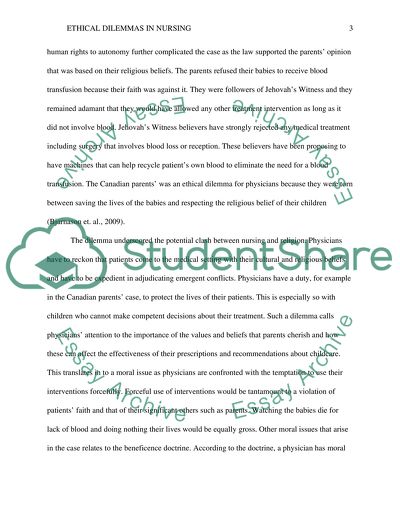Cite this document
(“The ethical dilemma of the physicians orders for the care of a child Essay”, n.d.)
The ethical dilemma of the physicians orders for the care of a child Essay. Retrieved from https://studentshare.org/nursing/1630611-the-ethical-dilemma-of-the-physicians-orders-for-the-care-of-a-child-vs-the-parents-disapproval
The ethical dilemma of the physicians orders for the care of a child Essay. Retrieved from https://studentshare.org/nursing/1630611-the-ethical-dilemma-of-the-physicians-orders-for-the-care-of-a-child-vs-the-parents-disapproval
(The Ethical Dilemma of the Physicians Orders for the Care of a Child Essay)
The Ethical Dilemma of the Physicians Orders for the Care of a Child Essay. https://studentshare.org/nursing/1630611-the-ethical-dilemma-of-the-physicians-orders-for-the-care-of-a-child-vs-the-parents-disapproval.
The Ethical Dilemma of the Physicians Orders for the Care of a Child Essay. https://studentshare.org/nursing/1630611-the-ethical-dilemma-of-the-physicians-orders-for-the-care-of-a-child-vs-the-parents-disapproval.
“The Ethical Dilemma of the Physicians Orders for the Care of a Child Essay”, n.d. https://studentshare.org/nursing/1630611-the-ethical-dilemma-of-the-physicians-orders-for-the-care-of-a-child-vs-the-parents-disapproval.


